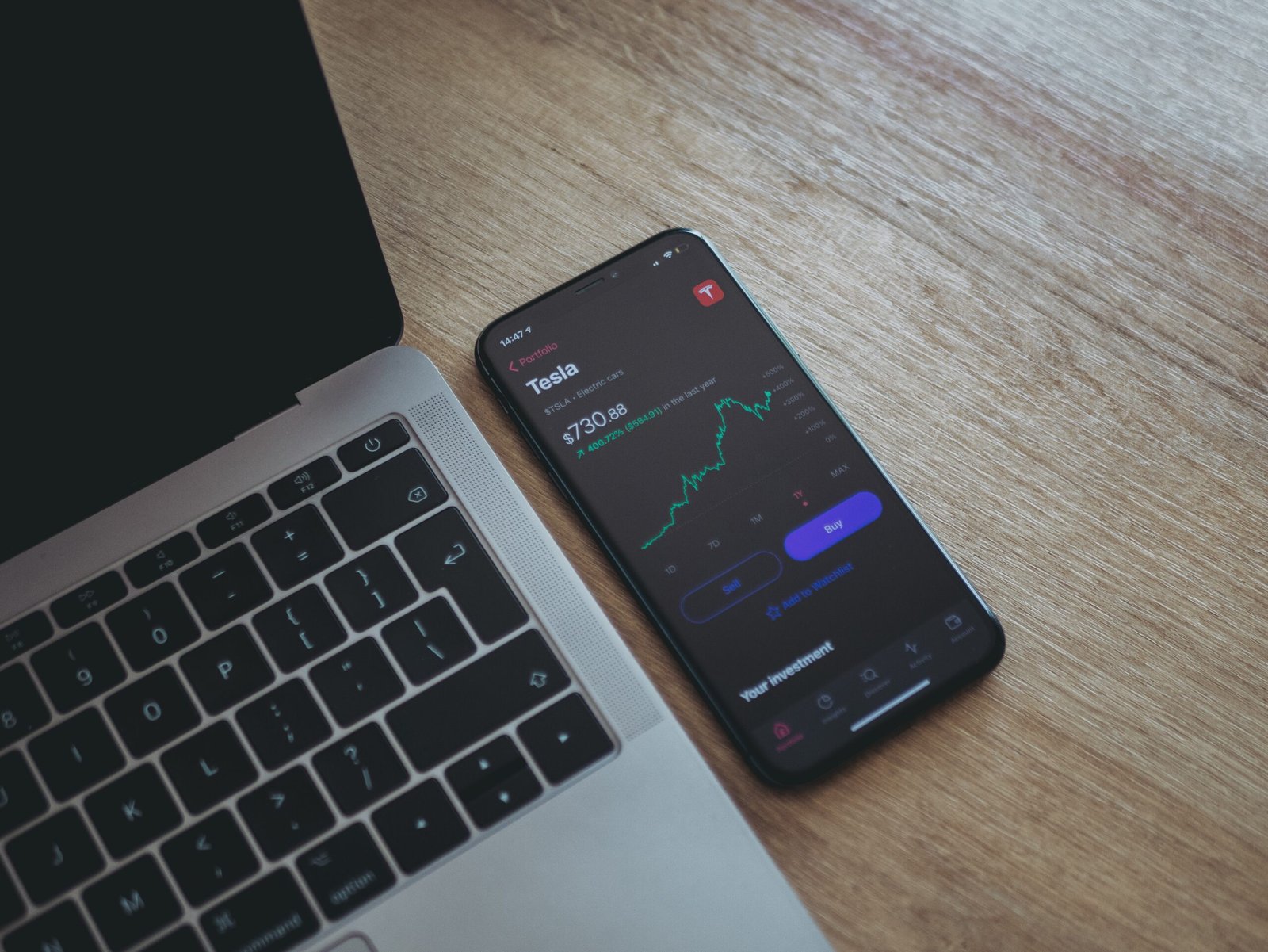Money market accounts are a popular financial tool for individuals looking to earn interest on their savings while maintaining liquidity. These accounts operate similarly to traditional savings accounts, but with higher interest rates and certain restrictions. In this article, the functioning of money market accounts will be explained, highlighting the benefits they offer and the features that distinguish them from other types of banking accounts. Whether you are considering opening a money market account or simply seeking a better understanding of how they work, this article will provide you with the necessary information to make informed financial decisions.
Check Other Money Aesthetic Aricles
What is a Money Market Account?
Definition
A money market account is a type of deposit account offered by banks and credit unions that combines features of both a savings account and a checking account. It is designed to provide investors with a safe place to park their funds while still earning a competitive rate of interest. Money market accounts are considered low-risk investments and are often used as an alternative to traditional savings accounts.
Characteristics
There are several key characteristics of a money market account that distinguish it from other types of deposit accounts. First, money market accounts typically require a higher minimum deposit than regular savings accounts. Additionally, money market accounts usually offer a higher rate of interest compared to savings accounts. They also often come with more flexibility in terms of accessing funds, such as check writing privileges and online banking options. Money market accounts are generally considered to be highly liquid, meaning that depositors can easily access their funds when needed.
Opening a Money Market Account
Eligibility
To open a money market account, individuals must meet certain eligibility criteria set by the bank or credit union. These criteria may vary among financial institutions, but commonly include a minimum age requirement (usually 18 years old) and residency in the country where the account is being opened. Some institutions may also require the account holder to have an existing relationship with the bank, such as holding a current checking or savings account.
Choosing a Bank
When choosing a bank for a money market account, it is important to consider several factors. One should look for a reputable and financially stable institution, as the safety of the deposit is paramount. Additionally, it is wise to compare interest rates offered by different banks to ensure the best return on investment. Other factors to consider include the bank’s customer service, accessibility of branches and ATMs, online banking capabilities, and any associated fees.
Documentation and Requirements
Opening a money market account requires the completion of certain documentation and meeting specific requirements. Typically, the bank will ask for a valid identification document, such as a driver’s license or passport, to verify the account holder’s identity. They may also require a social security number or taxpayer identification number for tax reporting purposes. Some banks may have additional requirements, such as a proof of address or employment, so it is essential to check with the specific institution beforehand.

Check Other Money Aesthetic Aricles
Deposit and Withdrawal
Minimum Deposit
Most money market accounts require a minimum initial deposit in order to open the account. This amount can vary widely depending on the financial institution and the type of account being opened. It is crucial to carefully review the minimum deposit requirement before choosing a money market account. However, it is worth noting that maintaining a certain balance in the account may also be necessary to avoid monthly maintenance fees.
Transaction Limits
Money market accounts typically have transaction limits in place, which restrict the number of certain types of transactions that can be made within a specified time period. This helps ensure the account holder’s access to funds while still promoting stability and liquidity. Common transaction limits on money market accounts include a maximum number of withdrawals or transfers per statement cycle. It is important to understand and adhere to these limits to avoid any penalties or fees imposed by the bank.
Check Writing
One of the unique features of money market accounts is the ability to write checks on the account. This provides added convenience and flexibility in managing finances. However, it is crucial to keep track of check usage and adhere to any check limits specified by the bank. Additionally, it is important to maintain sufficient funds in the account to cover any checks written, as bouncing a check can result in fees and other consequences.
Online and Mobile Banking
Many money market accounts offer online and mobile banking options, allowing account holders to conveniently manage their funds from anywhere at any time. These platforms typically provide features such as balance inquiries, transaction history, fund transfers, and bill payment capabilities. Utilizing online and mobile banking can help streamline financial management and provide a real-time view of the account’s activity.
Interest Rates
Variable Rates
Money market account interest rates are generally variable, meaning they can fluctuate over time based on changes in the market. These rates are often tied to a benchmark, such as the federal funds rate or the prime rate. Due to the variability of interest rates, the return on investment for money market accounts may change over time. It is important for account holders to stay informed about the current market conditions and compare rates offered by different financial institutions to ensure the best possible return on their investment.
Interest Calculation
Interest on money market accounts is typically calculated based on either the daily balance or the average daily balance in the account over a specific period. The interest is usually compounded and credited to the account on a monthly basis. The actual interest calculation method can vary among banks, so it is important to understand the specific terms and conditions outlined by the institution.
APY
APY, or Annual Percentage Yield, is a metric commonly used to compare the return on investment of different money market accounts. Unlike the interest rate, which reflects only the nominal rate of interest, the APY takes into account the compounding effect and provides a more accurate representation of the overall return. When comparing money market accounts, it is important to consider the APY as it provides a standardized measure of the account’s profitability.

Check Other Money Aesthetic Aricles
Fees and Charges
Monthly Maintenance Fee
Some money market accounts may charge a monthly maintenance fee. This fee is typically assessed if certain balance requirements are not met or if the account holder does not meet specific conditions outlined by the bank. The amount of the monthly maintenance fee can vary among institutions, so it is important to review the fee structure and any potential waivers before opening an account.
Excess Transaction Fee
Money market accounts are subject to certain transaction limits, and exceeding these limits can result in excess transaction fees. These fees are imposed by the bank and can vary in amount. It is important to carefully read and understand the transaction limits and associated fees to avoid incurring unnecessary charges.
Overdraft Fees
If a money market account is linked to a checking account for overdraft protection, it is essential to be aware of any potential overdraft fees that may apply. Overdraft fees are charged when the available balance in the money market account is insufficient to cover a debit transaction. While money market accounts are typically not used for everyday expenses, it is important to understand the potential fees associated with overdraft protection.
Safety and Security
FDIC Insurance
One of the primary reasons individuals choose money market accounts is their safety and security. Money market accounts offered by banks are typically insured by the Federal Deposit Insurance Corporation (FDIC) up to $250,000 per depositor, per insured bank. This means that even if the bank were to fail, the account holder’s funds would be protected up to the insured limit, providing valuable peace of mind.
Asset Backing
Money market accounts are generally considered to be low-risk investments, largely due to their asset backing. The funds deposited into money market accounts are typically invested by the bank in low-risk assets, such as government securities, certificates of deposit, or short-term corporate debt. These assets provide a higher level of security compared to riskier investments, such as stocks or bonds. The conservative investment strategy employed by banks helps ensure the stability and safety of money market accounts.

Comparing Money Market Accounts
Bank Offerings
When comparing money market accounts, it is important to consider the offerings of different financial institutions. This includes factors such as interest rates, account features, customer service, and any additional benefits offered by the bank. Some banks may provide added perks, such as fee waivers, ATM reimbursements, or access to investment services. Evaluating the various offerings can help determine which money market account best aligns with an individual’s financial goals and preferences.
Rates and Fees
Interest rates and associated fees play a significant role in determining the profitability of a money market account. It is crucial to compare rates and fees among different banks to find the most favorable terms. Additionally, it is important to consider any potential fees, such as monthly maintenance fees or excess transaction fees, that may impact the overall return on investment. Balancing competitive interest rates with low fees is essential in maximizing the benefits of a money market account.
Customer Reviews
Customer reviews can provide valuable insight into the overall experience of operating a money market account with a specific bank. Hearing directly from other account holders can shed light on the level of customer service, account management tools, and any potential issues or limitations. Reading customer reviews from multiple sources can help evaluate the reputation of different banks and make an informed decision based on the experiences of others.
Pros and Cons
Advantages
Money market accounts offer several advantages that make them a popular choice among investors. One significant advantage is the potential for higher interest rates compared to regular savings accounts. Money market accounts also provide ease of access to funds, with check writing capabilities and online banking options. Additionally, money market accounts benefit from FDIC insurance, offering depositors the security of knowing their funds are protected up to the insured limit.
Disadvantages
While money market accounts have their benefits, there are also disadvantages that should be considered. One of the main drawbacks is the potential for fees, including monthly maintenance fees and excess transaction fees. These fees can reduce the overall return on investment and erode the profitability of the account. Additionally, money market accounts may not offer the same growth potential as riskier investments, such as stocks or mutual funds. As with any investment, individuals should carefully weigh the advantages and disadvantages before choosing a money market account.
Tips for Managing a Money Market Account
Regular Monitoring
It is essential to regularly monitor a money market account to stay informed about any changes in interest rates, fees, or account terms. Staying vigilant allows account holders to take advantage of potential rate increases, identify any unauthorized transactions, and ensure the account remains in compliance with transaction limits. Regular monitoring also enables individuals to evaluate the overall performance and make any necessary adjustments to maximize the account’s benefits.
Automatic Transfers
One way to make the most of a money market account is to set up automatic transfers. By automating regular transfers from a checking or savings account into the money market account, individuals can consistently contribute to their savings and take advantage of the higher interest rates. Automatic transfers help establish a disciplined saving habit and can help individuals achieve their financial goals over time.
Goal Setting
Setting clear financial goals is crucial when managing a money market account. Whether the goal is to save for a down payment on a house, an emergency fund, or a dream vacation, having a specific target in mind helps individuals stay motivated and focused. By regularly reviewing progress and adjusting goals as necessary, account holders can effectively utilize their money market accounts to achieve their financial objectives.
Conclusion
Money market accounts offer a safe and convenient way to earn a competitive rate of interest on funds while maintaining access to liquidity. These accounts combine the features of a savings account and a checking account, providing individuals with flexibility and security. Opening a money market account requires meeting specific eligibility criteria, choosing a reputable bank, and fulfilling necessary documentation requirements. By comparing offerings, considering interest rates and fees, and understanding the advantages and disadvantages, individuals can make an informed decision about the best money market account for their needs. With proper management and careful attention to monitoring, money market accounts can play a valuable role in achieving financial goals and providing a reliable source of income.











